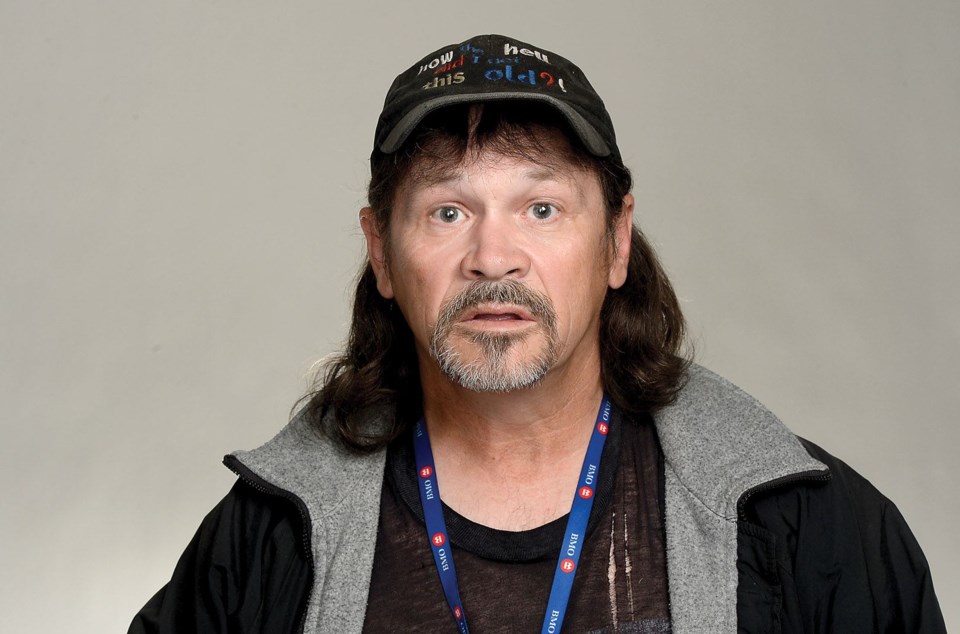For 16 months, Gord Moody lived between two Prince George shelters as he searched for a place to live.
The 56-year-old had been homeless once before, but long ago as a teenager when it didn't bother him so much.
He described his long search as hopeless.
"It's hard to explain. You don't got hope at all, it feels like you're wandering around like a gypsy," said Moody, who works seasonally as a painter and recently started going to the Prince George Brain Injured Group nearly 20 years after he suffered a blow to the head at work.
He said this is his first year completely on welfare, making most rental prices out of reach, especially knowing his name is up against dozens of others.
"We're over-populated in this town," he said. "You don't know who to ask for help or if they're going to help."

Just last month on his own, Moody found a temporary place for $375 a month - the basic shelter portion that people on income assistance get. It's a tiny room with a TV, microwave, cabinet to put food into, a drawer and a single bed.
But it's not home and he's still looking for "a place of solitude where I can just sit back and take it easy," said Moody, adding he had that once before but was kicked out by his landlord.
Moody's situation is not unique in this city. Since the Association Advocating for Women and Children (AWAC) launched its housing first program in mid January, the organization has accumulated a waitlist of more than 45 people.
"We get more coming in but there's only two workers," said executive director Connie Abe.
"Some have been homeless for 10 years. Some have been homeless for 15 years," said Abe, adding AWAC has already housed seven high-risk people. "They've been living in shelters and couch surfing so it's not unusual to hear someone not having a home for 18 months."
Moody went to B.C. Housing and said he was told he'd have to wait two years for a placement.
By email, B.C. Housing said the registry isn't exactly a waitlist because applicants "are offered housing based on need which means wait times may vary."
Need can cover women who have left a violent relationship, health concerns, stability of current accommodation and whether or not a person was homeless.
While that wasn't communicated to Moody, B.C. Housing spokesperson Rajvir Rao said "this is important information and is communicated to applicants on the phone, in person if they come into our offices and in numerous places on our website."There are 315 people in Prince George on the province-wide housing registry of 16,034, according to numbers released by B.C. Housing last week.
Moody isn't on that list. He said he didn't bother completing an application after hearing about the wait.
"I don't need a place in two years, I need it now," he said.
Hearing that could be a deterrent for people, Abe said, but AWAC always tell clients to still submit or else they won't be counted.
"They won't even bother filling out an application because of what they've been told... if you don't fill out those applications with B.C. housing or Aboriginal Housing, they won't know that you're looking for housing."
The housing-first approach tries to offer supports for both tenants and landlords because as much as the issue is housing those in need, it's also about the aftermath: keeping them housed.
"It's not just a matter of putting these individuals in housing, it's providing those supports to those people," Abe said, because those who haven't been living on their own, the switch can be difficult.
"It's a huge adjustment."
The focus is to provide support for the landlords, recognizing the tenants can be troublesome at times and may be dealing with addictions or mental health issues.
But that message was lost on some, like Moody, who are frustrated they aren't getting the help they want to find a place.
"I think what may have happened is that some clients and some people that are out there looking for housing may have assumed that because they are in a homeless situation and like Gordon for example... that our outreach supports would help him and provide the outreach supports to him. I think that may have been the confusion," Abe said.
"We wish that we could help all the people that contact us and that need our supports. We wish for that support and we're doing the best that we can. It is difficult meeting the needs of the community. We're doing our best."
A key problem is there aren't enough affordable rental units in the private market.
And most landlords will want a credit or a rental reference, or may check criminal records - all of which can eliminate options. Top-ups over and above the $375 are available, but only for those renting in the private market rather than subsidized housing.
"They don't qualify so there's a lot of barriers in the way to finding housing and that's even before having the support person in place to help you once you find the housing."
Kerry Pateman, with Community Partners Addressing Homelessness, echoed those complaints.
"Your average apartment is certainly not going to rent to someone who has no references."
And it's not just a shortage of housing, she said.
"It's much more complicated," said Pateman.
"It's a shortage of a number of issues. It's a shortage of supports and the understanding and the ability for these people to maintain housing even if you find them something."
She said local agencies are doing good work connecting with each other and communicating about available services.
"That is what is needed - that constant support to help individuals and they can be successful if the funding was there to help with the support."



